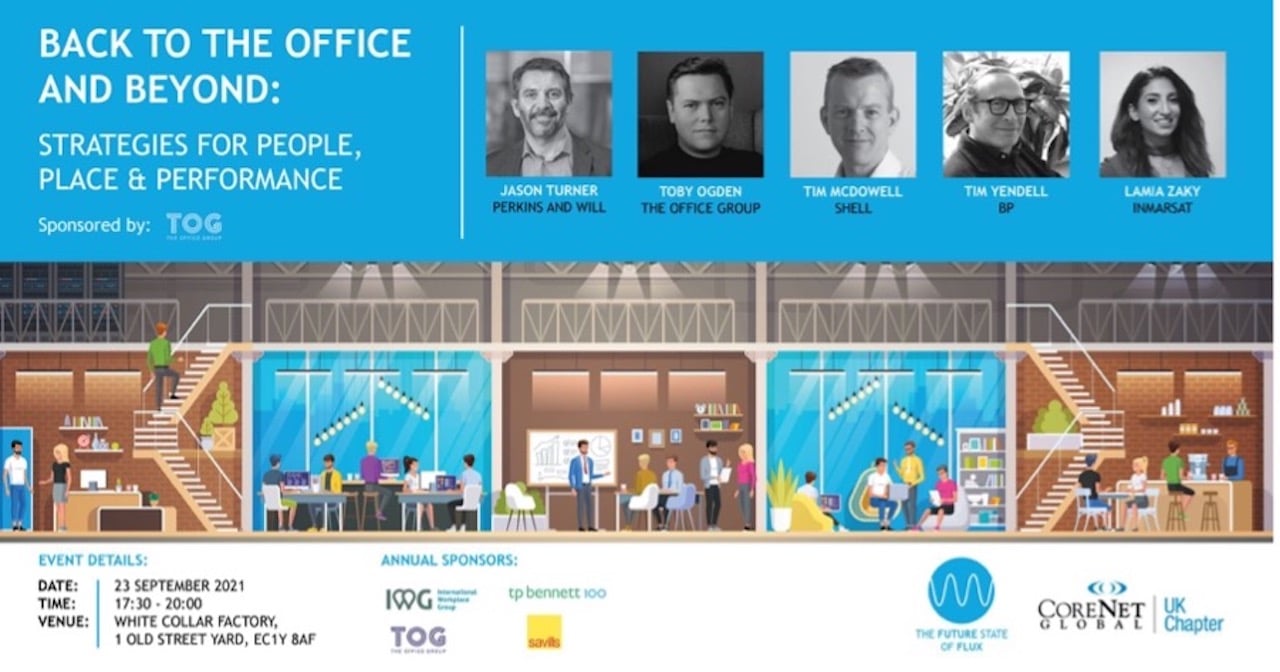Last week I attended a CoreNet UK event – just my second in-person event since March 2020! My main takeaway was that the return to the office will need a carrot and stick approach. Read my short recap below.
Companies are employing different approaches
Some people will need coaxing to come back to the office, but there will be sticks too. That was the message from Tim Yendell at BP talking about the oil company’s return to the office. They’re currently operating a 60/40 office/home model with individual teams working out what’s best for them. “We’re seeing a steady climb in occupation by incentivising people to make the commute worth it. It’s a case of test, talk to people and test again,” he said.
The situation was similar at competitor Shell, according to Tim McDowell who said the firm was aiming for 80% occupancy. But for Lamia Zaky at Inmarsat, the approach was quite different. The firm has not yet officially reopened its office.
Market overview
Toby Ogden from flex space provider The Office Group has a good overview of the market and has seen occupancy across their portfolio increase from 15-17% of members at the start of September to 28% last week. “Small and medium-sized businesses are coming back as they rely on the office; bigger companies are being more conservative.” The real estate task, he explained, is to make the workplace experience something that you want to go to.
Discussions from the audience threw up some interesting approaches to post-Covid corporate real estate. One delegate’s company told everyone to work from home on a certain day so they could sub-lease their office.
Employee preferences
Discussion inevitably focused on space being busy Tuesday to Thursday and how real estate managers could encourage a more consistent use of the office. “Leaders need to lead,” said Shell’s McDowell. “If leaders come in on Monday and Friday, others will too.” Scarcity of resource will also drive behaviours, said BP’s Yendell. “If people can’t get a desk on Tuesday, they’ll come in on another day, just as people travel off-peak to have more space.”
There was agreement that work – for knowledge workers at least – had become very transactional during Covid with the socialising and culture under threat. Career progression was also challenging said Zaky at Inmarsat. “For your career, you need interactions with different people.”
The death of presenteeism
On the positive side, the pandemic has seen the death of presenteeism said event chair Jason Turner from Perkins and Will. It will also allow different group types to explore different working patterns, said Zaky adding that the pandemic had put real estate on the board’s map, something the profession has been trying to do for years. Yendell pointed out that it had democratised communication with the cascade of information from the top much broader than in the past.
If one good thing has come out of the pandemic, it will be a general improvement in the quality of office space, said TOG’s Ogden. “In the past, we’ve seen plenty of sub-standard space. People won’t accept that now. There’s definitely a silver lining.”
Interested in joining the debate? Why not share some of these findings on social, but remember to credit @magentacomms along the way.
Check the sector news section of our blog for regular industry event recaps.









